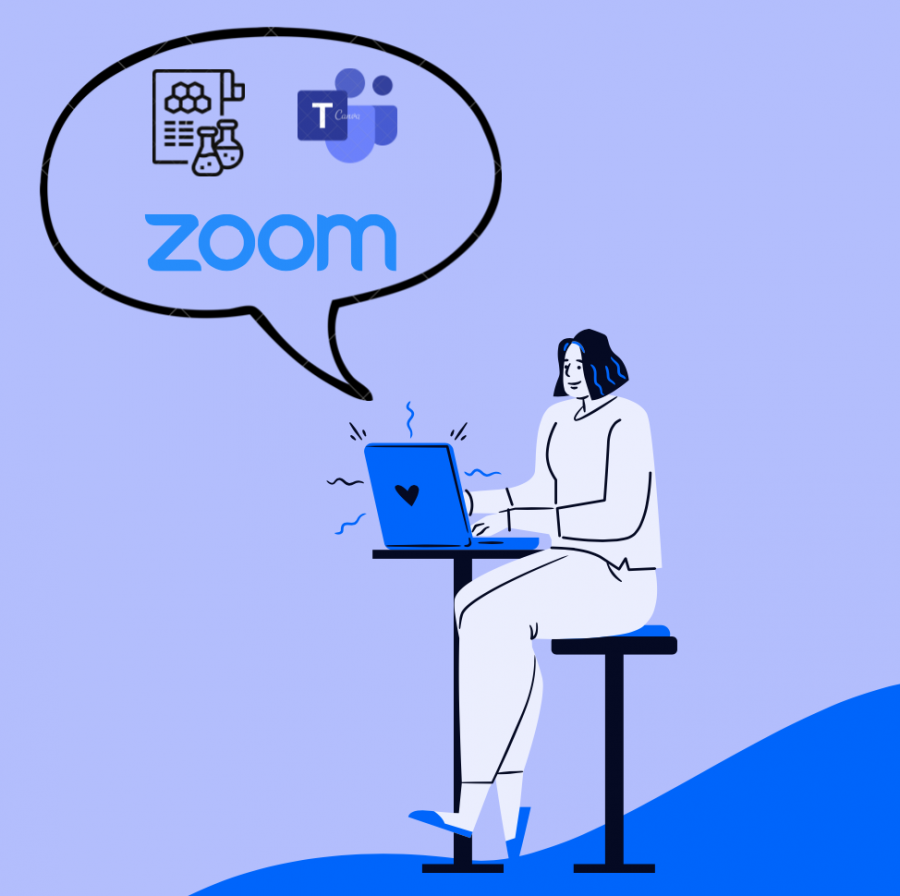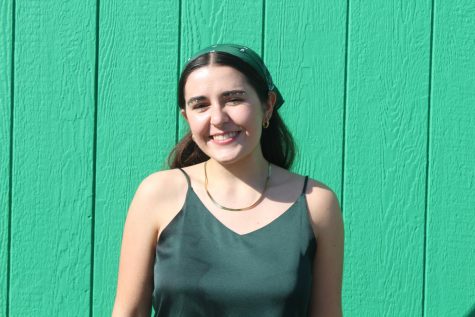COVID-19’s Impact on Student Interns
November 9, 2020
COVID-19 has had an insurmountable impact on the lives of students everywhere, but some of the experiences of the student body at Eleanor Roosevelt High School (ERHS) are going unnoticed. One perspective many students are unaware of is that of the internship students in the Science and Technology (ST) program.
ST students had their final internship applications submitted by January and received the news that they would be completely virtual in June and July. Despite understanding the decision, these seniors were undoubtedly upset. Senior Faithyn Chukundah is an intern at the United States Department of Agriculture (USDA) and felt disappointed because “the internship is so close to me and I have always wondered what it looked like on the inside.” She has always wanted to see the animals, which she does not “frequently get to be around.”
Senior Gabriela Holzer is an intern at the Lab of Cancer Biology and Genetics at the National Institute of Health (NIH) and was worried there would be no internships due to the pandemic. She was “relieved and thankful just to still have this opportunity.”
Key organizers of the student internships are Dr. Twu and Ms. Hemelt, the Internship and Science & Technology Coordinators respectively. Typically, internship applications would be due in early December and are reviewed by Dr. Twu, Ms. Hemelt, and a panel of teachers that work closely with the ST program.
The decisions of last year’s ST juniors were undoubtedly impacted by the coronavirus. Some students decided to do a regular Research Practicum (RP) project, opposed to applying for an internship. This year, four of the students that were selected for an internship declined, as they found other opportunities more suitable for their schedule. Many chose “Option 4” which is taking two approved dual enrollment courses during both semesters.
Ms. Hemelt observed that COVID-19 has made “everything much more challenging for everyone.” The hope is that by students working virtually with mentors and using data mining, that students get the RP experience. “The entire process of RP and all the things they learn along the way is extremely beneficial to students when they get to college,” Ms. Hemelt said. Dr. Twu agrees, stating it was “much harder” to find mentors and identify research projects. She reasoned that because the research of many mentors is mostly hands-on, that “interns cannot work on research projects virtually.”
Although all online, none of the internships are functioning uniformly. Dr. Twu explained that each intern must keep a “very detailed electronic logbook” that is shared with her and their mentor(s). Chukundah meets with her mentors daily on zoom for lectures, saying they are “very active communicators.” She does all of her work on Microsoft Teams, which she says is “an amazing platform, where we keep all of our files.”
Holzer is also working with a very involved team. She attends weekly lab meetings and has frequent calls with her mentor. In terms of work, her role is very bioinformatics based; she is currently analyzing data being collected by her mentor in the lab.
Many interns think they are missing out on certain benefits of an in-person internship such as networking opportunities and help with college preparation and applications. Chunkundah remarked that “I was looking forward to being in an environment where I’d interact with adults working in a field that interests me.”
Despite wishing to see the facility, Holzer has clung onto the benefits of an online internship. She is thankful to not have the daily commute to Bethesda. The virtual internship also helped her discover “a new love for bioinformatics,” which she would not have been exposed to in person. It is now her intended major for college. She concluded that being online has given her “different, but still valuable, opportunities.”
Some mentees have not lost hope for getting in-person work experience. There is a chance some could do some on-site work in the second semester. Chukundah is very excited to possibly be able to “see the turkeys and the facility in person, and meet my mentor.” Although the work will be wrapping up by then, “the hard stuff is being done now over zoom,” Faithyn commented. Dr. Twu, Ms. Hemelt, and Gabriela all observed that they do not see this happening.
Ultimately, the hard work of the student interns will not go unnoticed. According to Ms. Hemelt, Mr. Brady is planning a virtual science fair in late January, soon after projects are due.
Like many other things, COVID-19 could have lasting effects on the Internship Program. It is not yet known what is in store for this year’s ST junior class; however, the hope of Ms. Hemelt is that the program will “pick up where it left off.” Although, she mentioned it could “take a few years to get back to full capacity” which is the eventual goal.




